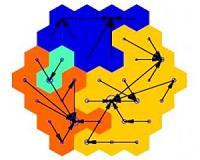 |
New Delhi (UPI) Feb 8, 2011 Climate-triggered migration will accelerate in the coming decades in the Asia-Pacific region, says a forthcoming Asian Development Bank report. Typhoons, cyclones, floods and drought have already caused temporary or long-term dislocation of millions of people in countries such as Malaysia, Pakistan, China and the Philippines, ADB said. "This process is set to accelerate in coming decades as climate change leads to more extreme weather," ADB said, citing excerpts from its "Climate Change and Migration in Asia and the Pacific" scheduled for release next month, Press Trust of India reports. The study calls on governments to be prepared for increased migration due to climate change, noting that an international cooperation system doesn't exist to manage migration flows. "No international cooperation mechanism has been set up to manage these migration flows and protection and assistance schemes remain inadequate, poorly coordinated, and scattered," the report said. "National governments and the international community must urgently address this issue in a proactive manner." "Climate-induced migration will affect poor and vulnerable people more than others," said Bart W. Edes, director of ADB's Poverty Reduction, Gender, and Social Development Division, China's state-run news agency Xinhua reports. "In many places, those least capable of coping with severe weather and environmental degradation will be compelled to move with few assets to an uncertain future. Those who stay in their communities will struggle to maintain livelihoods in risk-prone settings at the mercy of nature's whims," Edes said. With 4 billion people -- 60 percent of the world's population -- Asia is especially prone to climate-induced migration because of its massive population and high exposure to environmental risks, the report states. Furthermore, one-third of Southeast Asia's population resides in areas considered at risk and the region could experience population displacements of "unprecedented scale" in the coming decades," ADB said in its study. In Indonesia, for example, up to 201 million urban residents would be at risk from multiple hazards because of climate change in 2050, the study says, reports The Jakarta Globe. That's an increase of 148 percent from 2000. Existing migration patterns expected to accelerate, the study says, include rural-urban migration, especially to large cities; cross-border migration to India; migration of semi-skilled laborers to Middle East and Southeast Asian countries, as well as the continued "brain drain" of educated and wealthy people to developed countries. Yet more frequent and intense weather episodes could also spark the development of new semi-urban areas that would provide resettlement options to displaced populations, the study said.
Share This Article With Planet Earth
Related Links All About Human Beings and How We Got To Be Here
 Mathematical Model Explains How Complex Societies Emerge And Collapse
Mathematical Model Explains How Complex Societies Emerge And CollapseBethesda MD (SPX) Jan 21, 2011 The instability of large, complex societies is a predictable phenomenon, according to a new mathematical model that explores the emergence of early human societies via warfare. Capturing hundreds of years of human history, the model reveals the dynamical nature of societies, which can be difficult to uncover in archaeological data. The research, led Sergey Gavrilets, associate director for ... read more |
|
| The content herein, unless otherwise known to be public domain, are Copyright 1995-2010 - SpaceDaily. AFP and UPI Wire Stories are copyright Agence France-Presse and United Press International. ESA Portal Reports are copyright European Space Agency. All NASA sourced material is public domain. Additional copyrights may apply in whole or part to other bona fide parties. Advertising does not imply endorsement,agreement or approval of any opinions, statements or information provided by SpaceDaily on any Web page published or hosted by SpaceDaily. Privacy Statement |